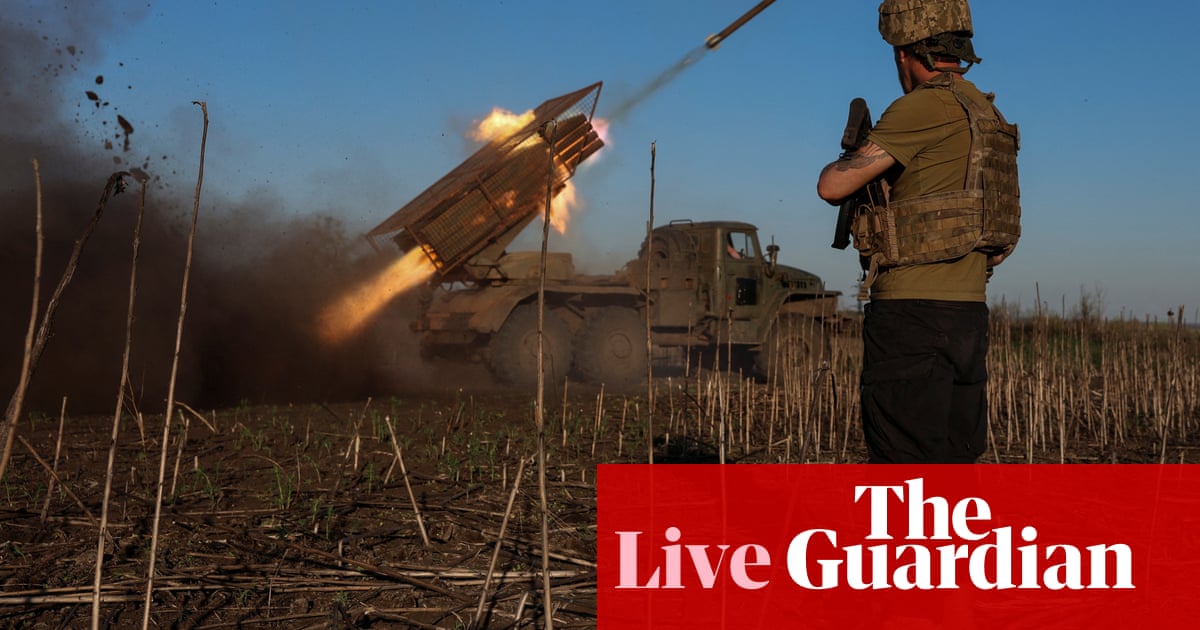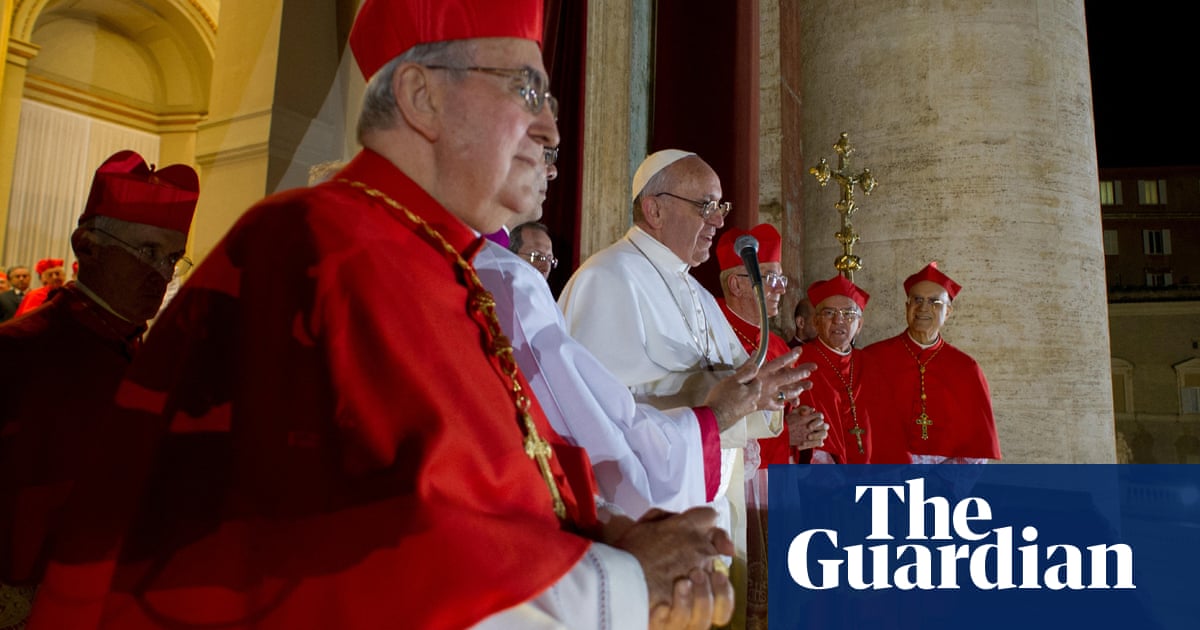Key events Show key events only Please turn on JavaScript to use this feature
French investigating magistrates have issued an arrest warrant against ousted Syrian leader Bashar al-Assad for suspected complicity in war crimes, notably the launch of a deliberate attack on civilians, a legal source said late on Tuesday, according to Reuters.
The mandate was issued on 20 January as part of an investigation into the case of Salah Abou Nabour, a Franco-Syrian national, who was killed on 7 June 2017 in a bombing raid in Syria.
This is the second arrest warrant issued by French judges, for the former Syrian leader, who was overthrown in early December 2024 by insurgent forces led by Hayat Tahrir al-Sham.
In November 2023, French judges had issued a first warrant against Bashar al-Assad on charges of complicity in crimes against humanity and complicity in war crimes.
It followed a French investigation into chemical attacks in Douma and the district of eastern Ghouta in August 2013 that killed more than 1,000 people. Assad’s government has in the past denied using chemical weapons against its opponents in the civil war, which broke out in March 2011.
Qatari, US and Egyptian negotiators set up Cairo hub to shore up Gaza ceasefire

Emma Graham-Harrison
Qatari, US and Egyptian negotiators are running a communications hub in Cairo to protect the ceasefire in Gaza, as Donald Trump said he was not confident the break in fighting would hold.
Violations have already been reported. Medics in Gaza said on Monday that eight people had been hit by Israeli fire. The start of the ceasefire was also delayed when Hamas did not provide the names of hostages to be released.
Trump claimed credit for the deal when his envoy helped to break months of deadlock to secure it before his inauguration. But asked after the event on Monday if he thought it would last, he appeared to distance himself from the conflict. “That’s not our war. It’s their war,” he told reporters.
A top Qatari diplomat said on Tuesday that negotiators were confident the US president would support the deal because his team had played a critical role in securing it.
“If it wasn’t for [Trump] this deal wouldn’t be in place right now. So we are banking on the support of this administration,” said Majed al-Ansari, an adviser to the Qatari prime minister and foreign ministry spokesperson. Trump’s envoy, Steve Witkoff, was in touch on a daily basis, he said.
The first stage of the ceasefire is scheduled to last for six weeks. Negotiations on the more challenging second phase are expected to start in early February.
Trust on both sides is negligible, so the communications hub is intended to prevent the ceasefire breaking down under accusations of violations.
Suspected settlers attacked Palestinian villages hours before Trump rescinded Biden sanctions
Shortly after suspected Jewish settlers stormed Palestinian villages in the occupied West Bank late Monday, setting cars and property ablaze, US president Donald Trump cancelled sanctions against Israelis accused of violence in the territory, reports the Associated Press (AP).
Settler leaders rushed to praise Trump’s decision on the sanctions, which were first imposed nearly a year ago as violence surged during the Israel-Hamas war in Gaza. The sanctions were later expanded to include other Israelis seen as violent or radical.
Israel’s finance minister, Bezalel Smotrich, called it a just decision, saying the sanctions were a “severe and blatant foreign intervention.” In a post on social media platform X, he went on to praise Trump’s “unwavering and uncompromising support for the state of Israel”.

At her confirmation hearing on Tuesday, Republican Elise Stefanik, Trump’s pick for US ambassador to the United Nations, said Israel had a “biblical right” to the occupied territory.
The AP reports that late on Monday, dozens of masked men who are widely believed to be settlers marauded through at least two Palestinian villages and attacked homes and businesses, according to officials in Jinsafut and al-Funduq, which are roughly 30 miles (50 kilometers) north of Jerusalem.
The Palestinian Red Crescent said it treated 12 people who were beaten by the men. It gave no details on their condition. Israel’s military said the men hurled rocks at soldiers who had arrived to disperse them, and that it had launched an investigation.
Jalal Bashir, the head of Jinsafut’s village council, told the AP that the men attacked three houses, a nursery and a carpentry shop located on the village’s main road. Louay Tayem, head of the local council in al-Funduq, said dozens of men had fired shots, thrown stones, burned cars, and attacked homes and shops.
“The settlers were masked and had incendiary materials,” said Bashir. “Their numbers were large and unprecedented.”
On Tuesday, the charred shells of cars lay on the side of the road in Jinsafut and residents surveyed the damage to a burned storage space, according to the AP.
Here is a summary of other key updates in the Middle East:
-
Qatari, US and Egyptian negotiators are running a communications hub in Cairo to protect the ceasefire in Gaza, as Donald Trump said he was not confident the break in fighting would hold. Violations have already been reported. Medics in Gaza said on Monday that eight people had been hit by Israeli fire. The start of the ceasefire was also delayed when Hamas did not provide the names of hostages to be released.
-
The UN’s secretary general, António Guterres, called on Israel’s security forces to exercise “maximum restraint” after a major Israeli military operation in the West Bank city of Jenin. The UN chief “remains deeply concerned” about the violence and “urges security forces to exercise maximum restraint and use lethal force only when it is strictly unavoidable to protect life,” a spokesperson for Guterres said.
-
At least nine Palestinians were killed and 40 people were injured during the Israeli operation in Jenin, according to the Palestinian health ministry. Three nurses and two doctors were also injured by Israeli fire during the military operation, which took place as the Gaza ceasefire entered a third day, the director of Khalil Suleiman hospital in Jenin said.
-
Israel’s prime minister, Benjamin Netanyahu, said the Jenin operation was “another step towards achieving the goal we set – strengthening security in Judea and Samaria”. He said it included police, military and the Shin Bet internal intelligence agency.
-
Israel’s top general Lt Gen Herzi Halevi resigned as the chief of staff of the Israel Defense Forces (IDF) on Tuesday. He cited the “terrible failure” of security and intelligence related to Hamas’s surprise attack on Israel on 7 October 2023. The Israeli opposition leader, Yair Lapid, said he saluted Halevi’s decision and also called on Netanyahu and his government to resign. Maj Gen Yaron Finkelman, the head of Israel’s Southern Command, which oversees operations in Gaza, also tendered his resignation on Tuesday.
-
Hamas said four more female Israeli hostages will be freed this weekend in return for Palestinian prisoners. The next group of hostages due to be released is expected to include captured female Israeli soldiers, who will be exchanged for Palestinian prisoners serving more lengthy sentences who are being held in Israeli jails, some of whom will be deported to third countries.
-
The UK prime minister, Keir Starmer, held a call with his Israeli counterpart, Benjamin Netanyahu. No 10 said Starmer told Netanyahu that he peace process in the Middle East should pave the way for a “viable and sovereign” Palestinian state. An Israeli readout of the call said Starmer faced pressure from Netanyahu over frozen arms sales to Israel.
-
The west should seize the opportunity to target the Tehran-backed Houthi leadership in Yemen while the Iranian government is weakened, the vice-president of the UN-backed government in Aden, Aidarus al-Zoubaidi, has said. Iran’s reverses in Lebanon, Syria and Gaza had left the country “massively weakened”, he said, adding: “Now is the time to counter the Houthis and push them back into their position.”
-
Iraq’s parliament has passed amendments to the country’s personal status law that opponents say would in effect legalise child marriage. The amendments give Islamic courts increased authority over family matters, including marriage, divorce and inheritance. Activists argue that this undermines Iraq’s 1959 Personal Status Law, which unified family law and established safeguards for women.

 2 months ago
67
2 months ago
67













































